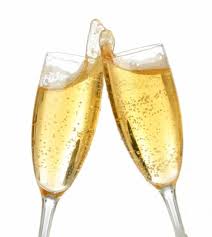记忆方法
将“champagne”分解为“ champ ”和“-agne”,想象一个“ champ ”(冠军)在庆典上大口“-agne”(agnes的音),庆祝胜利,从而形象地记住这是一种庆祝用的香槟酒。
以上内容由AI生成, 仅供参考和借鉴
中文词源
champagne 香槟酒
因产自法国Champagne郡而得名。地名来自camp, 平原,平地。
英语词源
- champagne
-
champagne: [17] Champagne comes (as does campaign) from late Latin campānia, a derivative of Latin campus ‘open field’ (source of English camp). This passed into Old French as champagne ‘open country’, a word borrowed into English in the 14th century as champaign (now archaic). It came to be applied specifically to a province of northeastern France (an area largely of open rolling countryside) and hence to the wine produced in that area.
There are references to ‘brisk Champagne’ and ‘sparkling Champagne’ in English from the 1660s and 1670s, but it was not until about two hundred years ago that modern champagne, produced by secondary fermentation in bottle, was invented (according to legend, by the monk Dom Perignon).
=> camp, campaign, champion - champagne (n.)
- 1660s, from French, short for vin de Champagne "wine made in Champagne," former province in northwest France, literally "open country" (see campaign (n.)). Originally any wine from this region, focused to the modern meaning late 18c.
权威例句
- 1. We had a nice meal with a bottle of champagne.
- 我们美餐了一顿,还喝了一瓶香槟。
- 2. Eugene was concocting Rossini Cocktails from champagne and pureed raspberries.
- 尤金当时正在用香槟和覆盆子酱调配罗西尼鸡尾酒。
- 3. A moment or two later champagne in an ice-bucket materialized beside them.
- 片刻之后,他们身边出现了一只装着香槟的冰桶。
- 4. Could this really stop the champagne from going flat?
- 这真的能让香槟不走气吗?
- 5. If we're feeling flush we'll probably give them champagne.
- 等我们有钱了就可能会给他们喝香槟。
